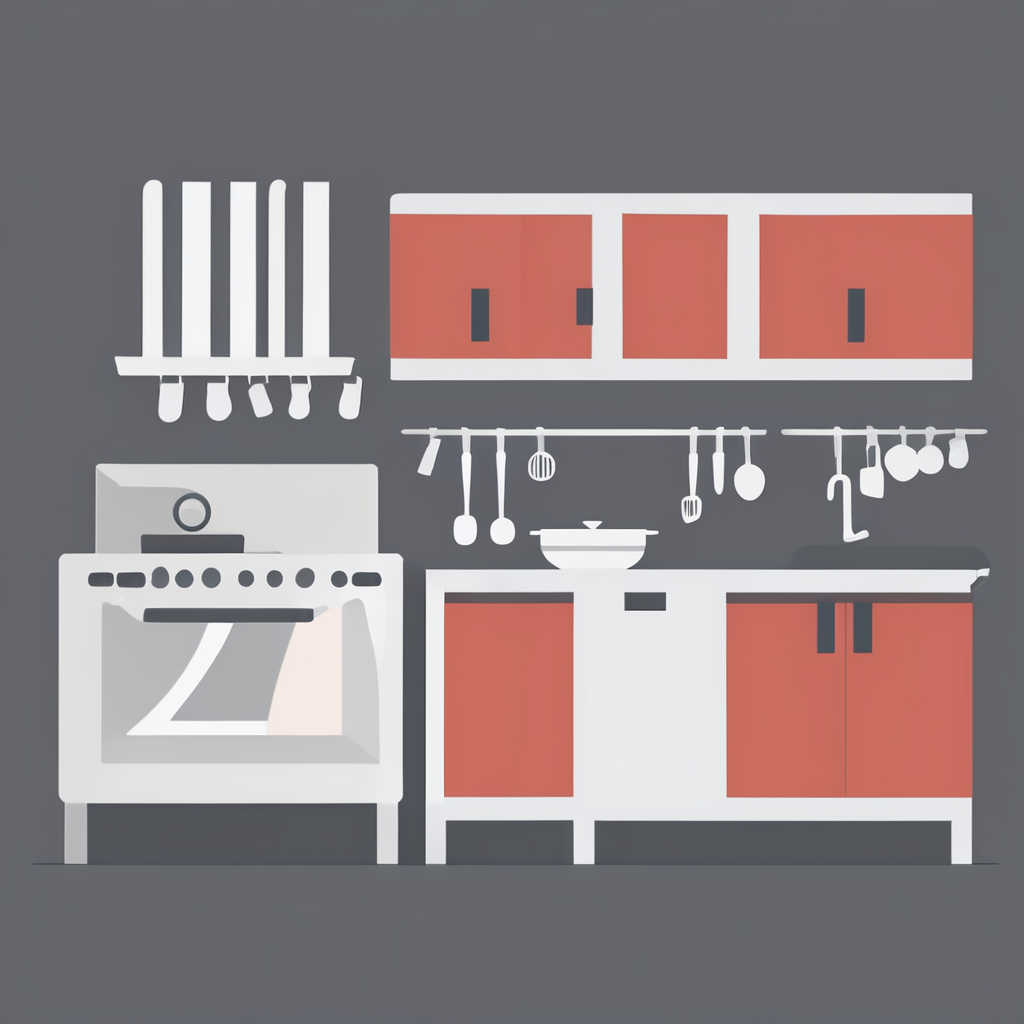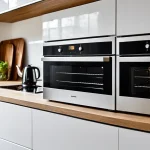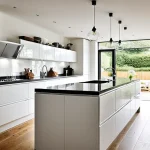Leading Sustainable Trends in UK Kitchen Bars
Sustainable innovations have become a cornerstone of eco-friendly kitchen bars UK, driving a shift toward greener designs and materials. Many establishments now prioritize environmental responsibility through the use of reclaimed wood, energy-efficient lighting, and low-impact finishes. These choices reduce waste and energy consumption, reflecting a commitment to sustainability without compromising style or functionality.
In the UK, kitchen bars are integrating cutting-edge eco-friendly solutions—such as biodegradable countertops and smart water-saving faucets—that balance practicality and environmental concerns. This transformation is influencing suppliers and builders, encouraging widespread adoption of sustainable practices.
Also read : Exploring the uk’s favorite culinary delights: top dishes in british eateries
Experts emphasize that embracing eco-friendly kitchen bars UK is more than a trend; it’s a long-term industry shift. Designers advocate for incorporating renewable resources and reducing carbon footprints as essential to future projects. By aligning with environmental responsibility principles, UK kitchen bars are setting examples for other sectors. The adoption of sustainable innovations not only benefits the planet but enhances user experience, proving that environmental care and modern living can coexist beautifully.
Sustainable Materials and Construction Practices
Using sustainable materials is increasingly essential in modern home construction and renovation. Popular choices include bamboo and reclaimed wood for cabinetry due to their rapid renewability and durability. For flooring, options such as cork and linoleum stand out as eco-friendly surfaces that combine comfort with low environmental impact. Countertops made from recycled glass or composite materials also contribute to greener living spaces.
Have you seen this : Unveiling the key obstacles to kitchen efficiency in uk restaurants
Minimising construction waste is a critical aspect of low-impact construction. Builders often implement careful project planning to reduce offcuts and reuse scrap materials whenever possible, preventing unnecessary landfill contributions. Techniques like modular building and prefabrication further decrease waste by streamlining the assembly process.
In the UK, certifications such as BREEAM and the CE Mark ensure that materials and methods meet strict environmental standards. These prove that homes are constructed with sustainability in mind, supporting energy efficiency, reduced emissions, and responsible sourcing. Adhering to these UK standards for eco-friendly building helps homeowners make informed decisions while contributing positively to the environment.
Energy-Efficient Appliances and Lighting
Innovating with green technology
Energy-saving kitchen appliances have become essential in modern kitchen bars aiming to reduce environmental impact and operational costs. Innovations in green technology now allow appliances to consume significantly less power without compromising performance. For example, induction cooktops and convection ovens are widely adopted for their rapid heating and energy efficiency.
Efficient lighting solutions complement these appliances. The shift to LED lighting has transformed the energy profile of kitchen bars; LEDs use up to 75% less energy than traditional incandescent bulbs and last longer. Many establishments integrate smart energy management systems, which adjust lighting intensity based on natural light availability and occupancy, further reducing wasted energy.
Compliance with UK energy efficiency regulations is crucial. The Energy-related Products Directive (ErP) mandates minimum efficiency standards that manufacturers must meet. Operators benefit not only from cost savings but also from eligibility for government incentives encouraging energy-efficient upgrades.
Implementing these advances results in a greener footprint and enhanced sustainability, aligning kitchen bars with increasing consumer demand for eco-conscious business practices.
Waste Reduction and Circular Solutions
Reducing kitchen waste is essential for creating a more sustainable kitchen bar. Implementing kitchen waste reduction strategies helps minimize food and packaging waste, directly supporting environmental goals. For example, precise inventory management and portion control reduce food spoilage and leftovers, cutting down on unnecessary waste.
Recycling initiatives are another significant facet. By using dedicated recycling bins and partnering with local waste collection services, kitchen bars can effectively sort and recycle glass, plastics, and cardboard. Composting systems transform organic waste into valuable soil nutrients, closing the loop in waste management.
Circular economy principles promote sourcing from local suppliers who prioritize sustainable practices. This approach supports a circular economy where materials and products are reused or repurposed, reducing overall environmental impact. For instance, purchasing ingredients from farms that use eco-friendly packaging or buy-back schemes for reusable containers enhances resource efficiency.
Ultimately, integrating these circular solutions into kitchen operations not only helps reduce the carbon footprint but also elevates brand reputation, showing commitment to sustainability and community well-being.
Inspiring Case Studies: UK Kitchen Bars Leading the Way
Discovering real-life examples of UK kitchen bars embracing sustainability reveals inspiring strategies for eco-innovative businesses. One standout case study highlights a London-based kitchen bar that adopted energy-efficient appliances and local sourcing. This led to a significant reduction in their carbon footprint, cutting energy consumption by 30% within the first year. Such measurable environmental benefits underscore the power of simple yet effective changes.
Another influential example involves a Manchester kitchen bar which implemented a comprehensive waste management system. By composting organic waste and minimizing single-use plastics, this business succeeded in diverting over 70% of its waste from landfills. These case studies demonstrate how practical steps translate into impactful outcomes.
Recognition for these UK kitchen bars is abundant. Awards for sustainability and green innovation celebrate their commitment, encouraging others to follow suit. These stories not only showcase achievements but serve as practical guides, motivating eco-innovative businesses to prioritize environmental responsibility without compromising quality or customer experience.
Practical Steps for Implementation and Compliance
Successfully integrating sustainable kitchen bar practices requires careful planning and adherence to UK regulations. Start by assessing your current operations to identify areas where eco-friendly improvements can be made. Focus on reducing waste, sourcing sustainable materials, and adopting energy-efficient appliances.
Understanding UK regulations related to waste disposal, recycling, and energy use is crucial. Compliance ensures your business avoids penalties and demonstrates commitment to environmental responsibility. Familiarize yourself with standards such as the Waste Electrical and Electronic Equipment Directive and local council requirements for waste management.
When embarking on sustainability goals, tap into available resources and support networks. Organisations offering implementation tips can guide businesses through the process, providing tailored advice for kitchen bars. They often offer training, case studies, and grant information to ease the transition.
Sustainable kitchen bar tips emphasize simple yet impactful actions, like switching to biodegradable packaging or partnering with eco-conscious suppliers. Adopting these steps not only aligns with regulations but also appeals to a growing customer base valuing green business practices.
This approach balances operational efficiency with environmental stewardship, ensuring your kitchen bar thrives while making a positive impact.


